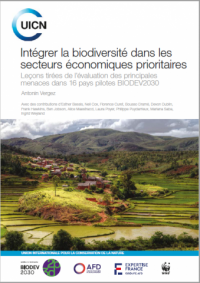What is the issue ?Â
The COVID-19 pandemic caused the global economy to shrink by an estimated 3.5% in 2020. 8.8% of global working hours were lost, equivalent to 255 million full-time jobs, and severe long-term economic consequences are predicted. Governments are allocating funds to recover their economies from the pandemic.
Global fiscal support to stimulate and recover economies has reached USD 16.7 trillion (April 2021). Fiscal policy actions have concentrated in advanced economies but are constrained by financing in many developing countries.
Nature has been largely neglected in existing stimulus packages, even though nature supports the majority of global GDP and the processes that provide humanity with clean air, food, and water. So far, only USD 56 billion of spending is directed towards natural capital measures (UNEP). Moreover, stimulus with harmful effects on the environment exceeds that with beneficial effects on nature.
Unless much more stimulus is redirected to initiatives that protect and restore nature, recovery investments risk exacerbating the biodiversity and climate crises and so ultimately undermining economies in the future.
Over half (55%) of global GDP depends on healthy ecosystems but unsustainable economic activity is driving nature loss faster than ever before. This degradation of nature puts economies at risk. Changes in crop supplies caused by the decline in pollinating insects alone, for instance, could result in an annual net loss of USD 191 billion globally.






